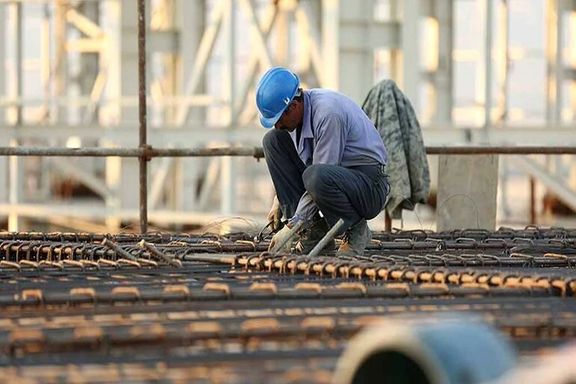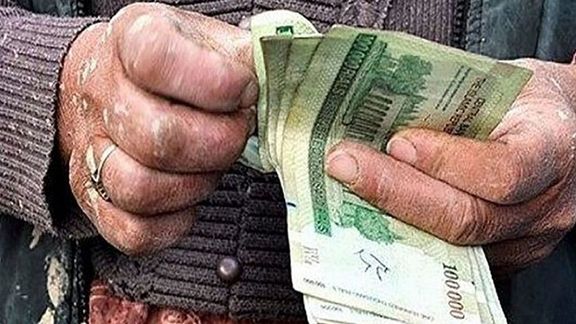Iran's Huge Minimum Wage Increase Can Backfire On Workers

Employers in Iran say the recent unprecedented 57-percent minimum wage increase may backfire on workers by reducing demand for labor, while boosting inflation.

Employers in Iran say the recent unprecedented 57-percent minimum wage increase may backfire on workers by reducing demand for labor, while boosting inflation.
During four years of high double-digit inflation and the devaluation of Iran’s currency, wages have become a fraction of what workers need to survive. People’s basic needs have become expensive because imports are more expensive. A worker now earns around $100 a month, woefully inadequate even for food.
Last week, the government and labor representatives decided to increase minimum wage by 57 percent, but many warn that this will just lead to more inflation.
Hossein Salahvarzi, deputy chairman of Iran's Chamber of Commerce, in a tweet on March 12 called the increase "nominal" and said it would not help people's livelihoods. "Financial improvement in the lives of the members of the society requires stability in production and trade," he said and argued that the government should "reduce political risk", among other things such as better economic management, to provide economic stability.
Pundits say political stability and improved international trade require reducing tensions with the international community. When production goes up, demand for labor will increase too and workers' wages will rise. The increase in minimum wage under current circumstances would only cause higher prices, ruin a wide range of small businesses, and cause further unemployment as employers will not be able to keep up with the higher costs of production and transportation of goods.

Expectations of more inflation are also based on other factors including large government's budget deficits and a decision to stop subsidies for imported food and other essential goods to save around $8 billion for the government.
Some experts say a higher minimum wage will not boost inflation. "The increase in minimum wage has no inflationary effect at all," Saeed Laylaz, economist, told Khabar Online Tuesday. The root cause of inflation growth in Iran is firstly the government budget deficit, and secondly, corruption in the banking system which reveals itself in disequilibrium.
The Supreme Labor Council which consists of representatives of workers, employers, and the government last week agreed to raise the minimum wage from 26,550,000 rials to 41,790,000 rials, which is nearly $170 in today’s exchange rates.
With the monetary allowances for housing, food and children, the final wage will increase to 62,000,000 rials – almost $240 a month, before $24 is withheld for payroll taxes.
The 57 percent increase was unprecedented in the past three decades. Labor groups say it is difficult to say whether the increase will have a lasting impact in workers' lives. They argue that the rate of inflation, already above 40 percent, may rise to new heights and soon reduce the purchasing power of their wages.
Labor groups also insist that the poverty line in Iran is now around $400 a month for a family of 3.3 people, so the proposed minimum wage is half of the needed money just to be able to survive. Some 60 percent of Iranians have fallen into what government officials describe as poverty and can no longer afford red meat and even fruit and vegetables the consumption of which has hugely dropped in the past few years.
Iranian workers were earning more than $400 a month before the United States imposed sanctions in 2018, which pushed Iran’s currency almost ninefold lower, creating inflation that wages have not kept up with.
Rising prices and economic hardship have led to repeated labor strikes and nationwide protests since 2017, even before the imposition of US sanctions. Iran’s centrally controlled economy is inefficient and not conducive to foreign investments, with high reliance on oil exports.